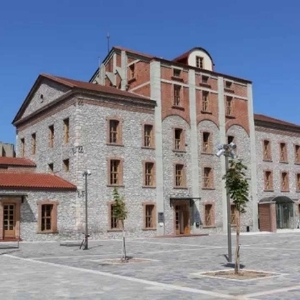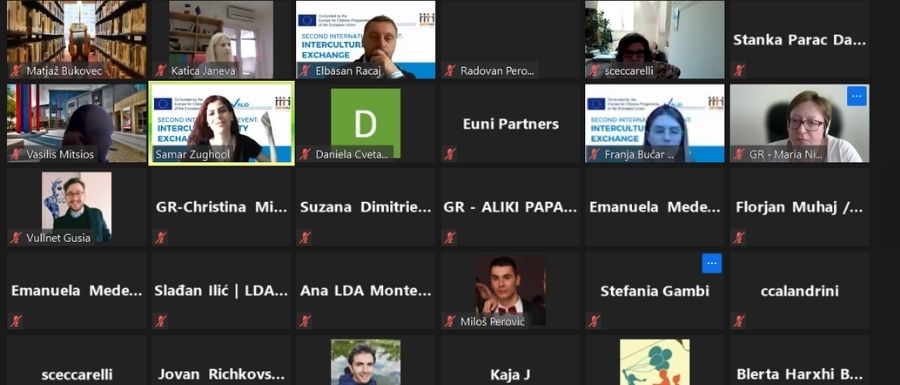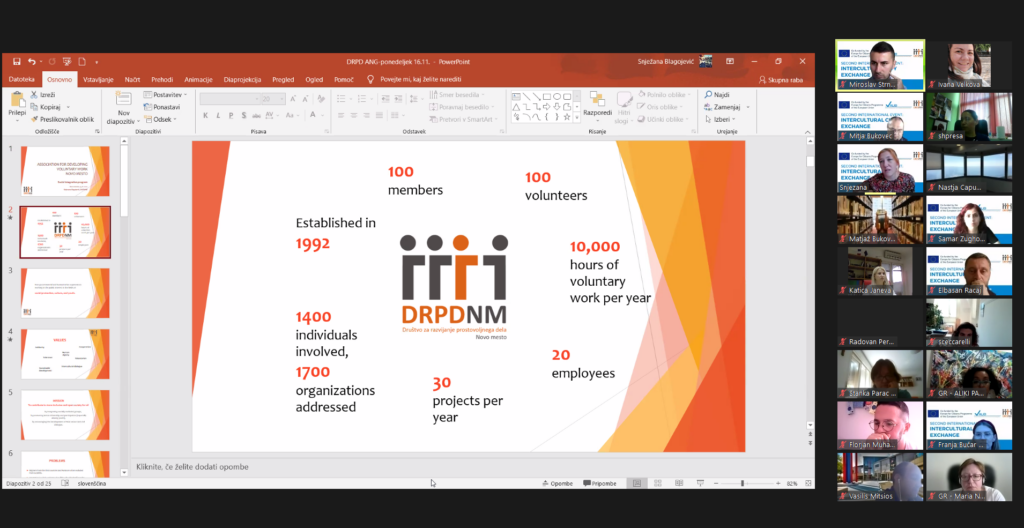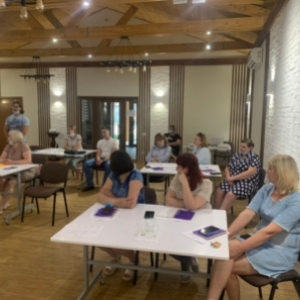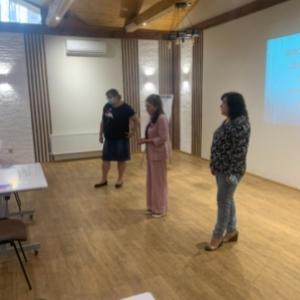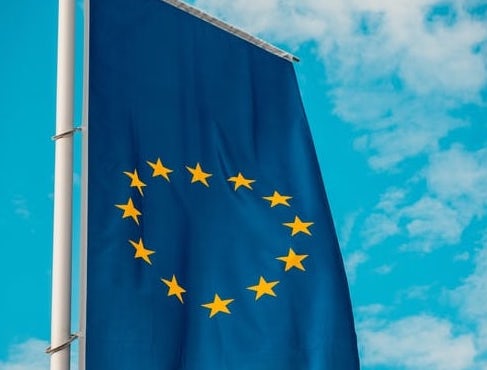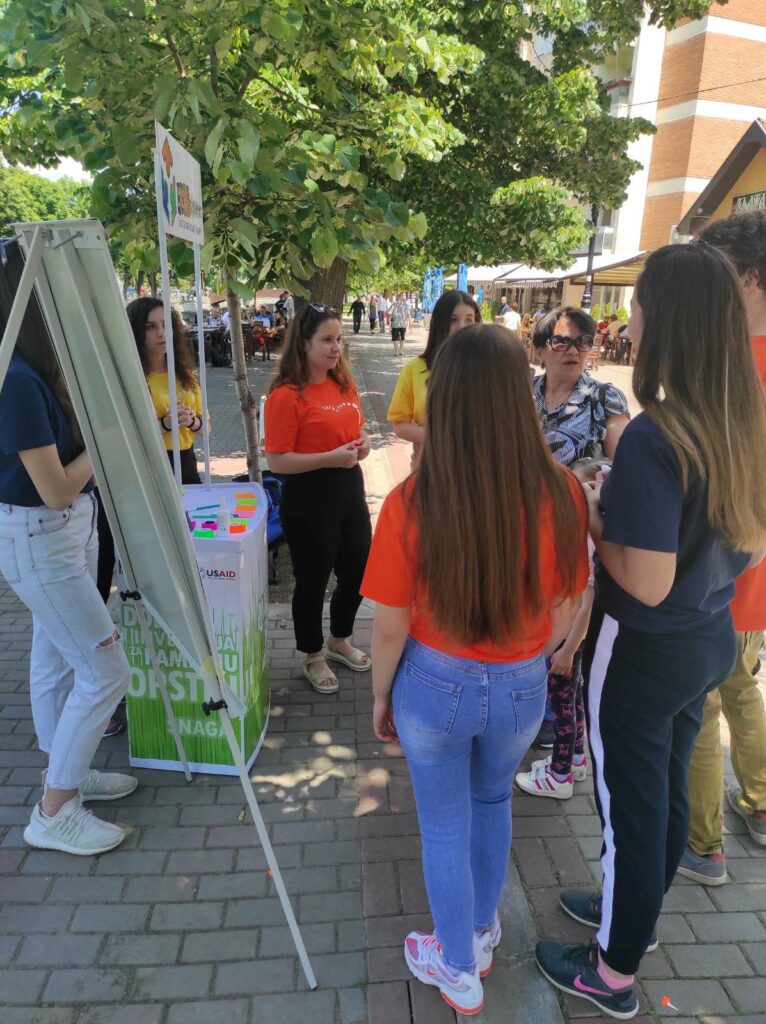The First Round of the Food Wave Call for Proposals directed to youth-led and small civil society organisations closed successfully! 21 proposals have been selected, involving 13 different countries and 25 territories.
The Food Wave Project, led by the Municipality of Milan together with 29 project partners (cities, municipal agencies and civil society organisations) in 17 countries, aims at creating awareness on sustainable ways to consume and produce food for climate change mitigation and activate young people in their cities, in order to enable them to influence institutional decisions, so they can lead us to a sustainable global food system by 2030, with the involvement of global networks such as C40.
Within this framework, the Project, under the coordination of ALDA, with the collaboration of the project partners and in synergy with the Milan Urban Food Policy Pact (MUFPP), established a sub-granting scheme that will contribute to the Food Wave Project overall objective, supporting grass-root initiatives in the field of climate-friendly food consumption behaviours.
The selected proposals will directly involve about 6000 young people in 13 European countries implementing a wide variety of communication, promotion, dissemination and awareness raising initiatives but also training and learning by doing activities such as intercultural cooking workshops, gardening and planting workshops and creative activities like food museums, bike-parades, photo documentaries among many others!
The main themes that will be addressed are: Sustainable diets to reduce the impact on the planet and protect human rights, fight against food waste, sustainable food education and knowledge sharing/dissemination, local alternative food systems, local producer and territorial market, fight against climate change and equal access to healthy, sustainable and fairy food.
Through the territorial actions promoted by the selected applicants, the project is contributing to the SDGs localisation and to the implementation of the United Nations’ 2030 Agenda, with a specific focus on fighting hunger (SDG 2), contributing to economic growth and decent work opportunities (SDG 8), promoting responsible consumption and production patterns (SDG 12), building sustainable cities and communities (SDG 11) and contributing to the climate action starting from the territorial level (SDG 13).
Here is a complete list of the selected organisations and their projects:
| Country | Territory of the project implementation | Name of the organization | Title of the project |
| Belgium | Molenbeek | Bx -Jeunes 1080 | Fertile City |
| Belgium | Bruges | JCI Brugge vzw | Road show for JCI EC Bruges 2022 |
| Bulgaria | Sofia | Reflektor Foundation | Sofia Neighbourhood |
| France | Strasbourg | Stamtish | World Food for Thoughts |
| Hungary | Budabest | Felelős Gasztrohős Alapítvány – Heroes of Responsible Dining Foundation | Gas Trial – interactive gastronomy related trial program for young adults |
| Italy | Milan | Recup – Associazione di Promozione Sociale | Recipes from the neighbourhood |
| Italy | Turin | YOUth Connect | From Waster to Master |
| Italy | Milan, Zona 6, Quartiere Giambellino-Lorenteggio | Associazione di Promozione Sociale Laboratorio di Quartiere Giambellino Lorenteggio | GiambellGarden |
| Italy | Aosta (Aosta); Assisi (Perugia); Orvieto (Terni); Riva del Garda (Trento); Larino (Campobasso); Termoli. | Associazione Italiana Giovani per l’UNESCO | EDU project – Agenda 2030 |
| Italy | Milan and Florence | CHANGE FOR PLANET – YOUTH IN ACTION – APS | Eat Climate For breakfast |
| Netherlands | Almere | Stichting ‘n Wilde Keuze (Translation: Foundation A Wild Choice) | A Wild Choice: The Food Museum of today and tomorrow |
| Netherlands | Almere, Turin, Milan, Rome | Stichting Slow Food Youth Network | On the wave: European youth changing the food system |
| Poland | Warsaw | Polski Klub Ekologiczny Okręg Pomorski | „Climate Eatucation” |
| Portugal | Cascais | Associação Juvenil Rota Jovem | Eco youth citizens |
| Portugal | Esposende | Rio Neiva – Associação de Defesa do Ambiente / Rio Neiva – Environmental NGO | The museum of Food waste |
| Romania | Lasi | ERASMUS STUDENT NETWORK IAȘI – REȚEAUA STUDENȚILOR ERASMUS IAȘI (ESN Iași) | The rise of the Food Hero |
| Slovenia | Maribor | Entrepreneurial educational youth cooperative society EPEKA, ULTD, social enterprise | Healthy food for a healthy planet |
| Slovenia | Ljubljana | Komunikum, Inštitut za podatkovno povezovanje v medmrežju | Community garden Ljubljana |
| Spain | Madrid | Mar de Tierras | FOOD JUSTICE ON ZERO WASTE BIKE CHALLENGE |
| Sweden | Örkelljunga | Hello Youth | Let’s fight food waste |
Don’t miss the next news, catch the wave!
Visit the official page of the Food Wave Project: https://www.foodwave.eu/join-the-wave/
Follow the project on Instagram and Facebook and to sign up to our newsletter to receive updated information about the project and the opportunities offered to be part of our international community of young people working to fight climate change shifting towards fair and sustainable food systems.



